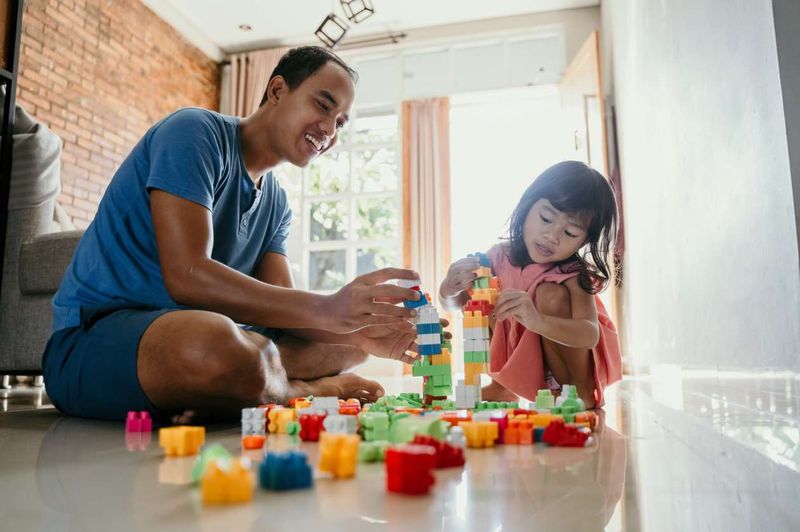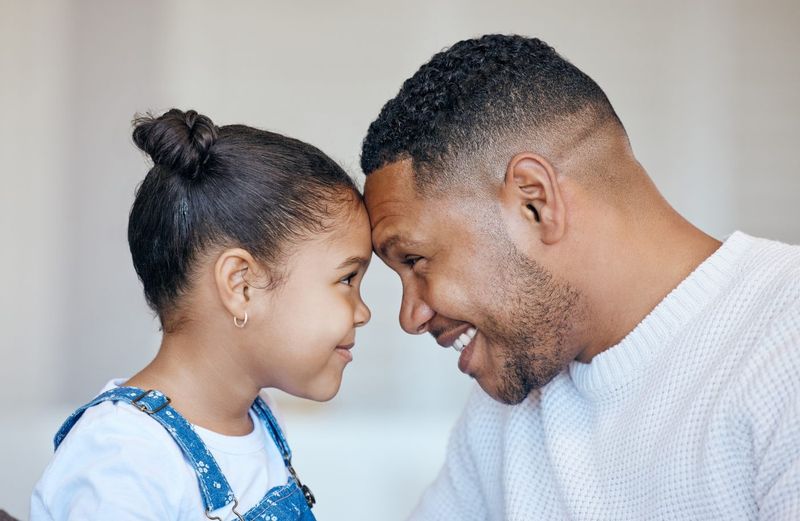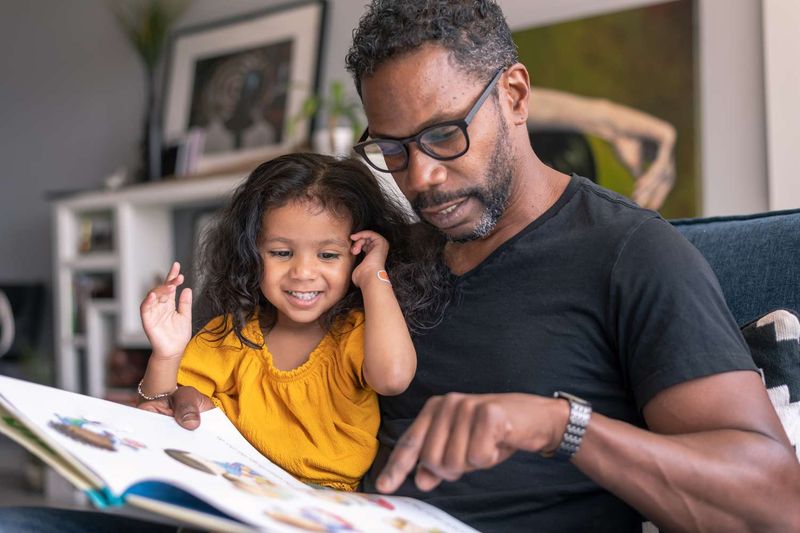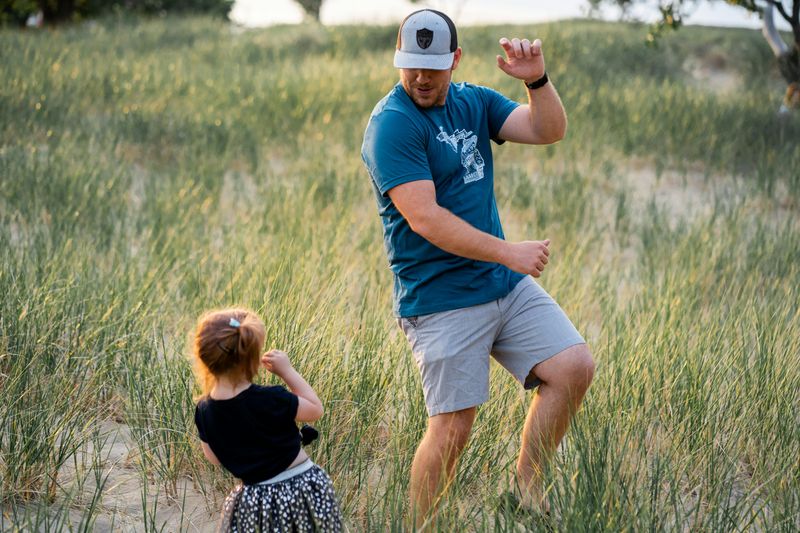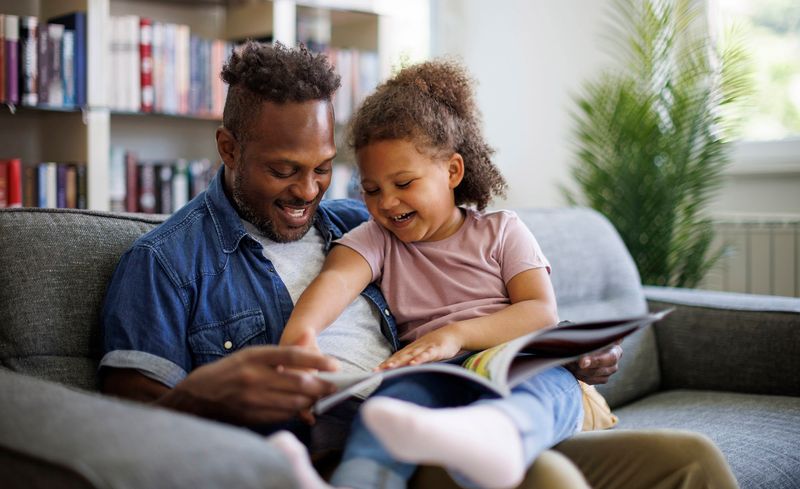Reflecting deeply on the absence of my father, I’ve dedicated myself to breaking the cycle and creating a nurturing environment for my daughter. By focusing on emotional availability, consistent presence, and intentional choices, I’m crafting a parenting journey vastly different from my own upbringing.
Here are 17 distinct ways I’m ensuring my daughter feels supported and loved every day.
1. I Show Up Every Day, No Exceptions
Every single day, rain or shine, I make sure my daughter knows I am there for her. I am intentional in my presence, whether it’s attending her school events or simply being home for dinner. This consistent presence builds a foundation of trust. I remember the longing for my father’s attention and how it affected my confidence. By showing up, I aim to break that cycle.
The routine of being there, even in the mundane moments, shows her she is a priority. Each day is a new opportunity to strengthen our bond. I want her to grow up with memories filled with shared experiences, so she never questions her importance in my life.
2. I Speak Love Freely and Often
Words of affirmation are a daily ritual in our home. I tell my daughter I love her every chance I get. It’s not just in moments of discipline or celebration, but as a part of our everyday conversations. These words are powerful and shape her self-worth.
When I was a child, love was rarely spoken, leaving a void I strive to fill for her. By vocalizing my affection openly, I aim to create an environment where she feels valued and secure. This simple yet profound act ensures she never doubts her place in my heart. It’s a legacy of love that I hope she carries forward.
3. I Prioritize Time Over Gifts
In a world obsessed with material possessions, I choose to prioritize our time together over lavish gifts. We play games, explore nature, or simply talk, enjoying each other’s company. This intentional choice conveys that experiences and shared moments are more valuable than any item.
Reflecting on my own childhood, I remember the absence of quality time and how it impacted my sense of belonging. By emphasizing moments over material gifts, I nurture a bond that teaches her about what truly matters. This practice builds her appreciation for life’s simple joys and reinforces that love is not measured by material wealth.
4. I Ask About Her Day and Really Listen
Each evening, I ask her about her day and make it a point to listen intently. It’s a simple yet impactful way to show she matters. Our conversations are a window into her world, and by truly listening, I gain insight into her joys and challenges.
Growing up, I often felt unheard, and it taught me the importance of active listening. By giving her my full attention, I validate her feelings and experiences. This practice not only strengthens our relationship but also teaches her the importance of listening in her interactions with others, building empathy and understanding.
5. I Let Her See Me Apologize
Apologizing is a powerful tool in parenting. I make it a point to apologize when I am wrong, teaching her humility and accountability. This is not just about correcting mistakes, but showing her that everyone, even parents, have learning moments.
In my childhood, apologies were rare, leading to misunderstandings and resentment. By modeling this behavior, I hope to teach her the value of owning up to one’s actions. It’s a lesson in integrity, showing her that respect is earned through honesty. This approach builds a relationship based on mutual respect and understanding, fostering a healthy emotional environment.
6. I Never Use Silence as Punishment
Silence as a punishment creates emotional distance. I refuse to use it as a tool for discipline. Instead, I opt for open communication, discussing the issues and feelings involved. This method not only resolves conflicts but strengthens our bond.
During my upbringing, silence was a common response to wrongdoing, often leaving me confused and isolated. By choosing dialogue over silence, I ensure she feels heard and understood. This approach fosters a sense of security, teaching her that communication is the key to resolving conflicts and maintaining relationships. It’s an empowering lesson in emotional intelligence.
7. I Celebrate Her Efforts, Not Just Her Wins
Effort deserves applause, and I make sure my daughter knows it. I celebrate her dedication, regardless of the end result. This helps her understand the value of perseverance and effort over mere success.
In my past, achievements were the only focus, creating pressure and fear of failure. By acknowledging her hard work, I teach her resilience and the importance of trying. This perspective builds her confidence and encourages her to embrace challenges with a positive attitude. It’s a lesson in valuing the journey, not just the destination, fostering a growth mindset.
8. I Support Her Dreams—Even the Unfamiliar Ones
Dreams are precious, and I support hers wholeheartedly, even when they are unfamiliar to me. I encourage exploration, providing resources and encouragement for her passions, whether it’s music, sports, or science.
As a child, my dreams were often dismissed, leaving me hesitant to pursue new interests. By embracing her dreams, I aim to instill confidence in her abilities and choices. This supportive environment allows her to grow and explore without fear of judgment, fostering creativity and self-discovery. It’s a vital part of her development, showing her that her ambitions are worth pursuing.
9. I Don’t Make Her Earn My Affection
Affection is freely given, never earned. I ensure my daughter knows she is loved unconditionally, regardless of her actions or achievements. This approach creates a nurturing environment where she feels secure and valued.
In contrast, my childhood was filled with conditional love, often tied to achievements or behavior, which bred insecurity. By offering my affection openly, I demonstrate that she is inherently worthy of love. This helps her develop a strong sense of self-worth, teaching her that love should never be contingent on performance. It’s a cornerstone of emotional security and healthy relationships.
10. I Honor Her Boundaries
Every individual deserves their boundaries respected, and I honor my daughter’s need for space and privacy. I actively ask and respect her wishes, fostering a sense of autonomy and trust.
Reflecting on my own childhood, boundaries were often overlooked, leading to feelings of invasion and discomfort. By respecting her space, I teach her the importance of setting personal limits and respecting others’. This practice nurtures self-respect and mutual understanding, helping her navigate relationships with confidence. It’s a fundamental lesson in personal empowerment and respect for individual needs.
11. I Let Her Be Angry Without Fear
Emotions are natural, and I allow my daughter to express anger freely without fear of retribution. Instead, I provide a safe space for her to vent, ensuring she feels supported and understood.
Growing up, anger was often stifled, leading to unresolved emotions and tension. By acknowledging her feelings, I teach her healthy emotional expression and regulation. This approach encourages open dialogue and emotional literacy, helping her manage feelings constructively. It’s a crucial aspect of emotional development, empowering her to face challenges with resilience and composure.
12. I Don’t Project My Pain Onto Her
I consciously work to separate my past pain from our present relationship. I avoid projecting unresolved issues onto her, ensuring our interactions are grounded in understanding and empathy.
In my own upbringing, unresolved parental issues often seeped into our daily lives, creating unnecessary tension. By taking responsibility for my emotions, I create a space where she feels safe and unburdened by adult problems. This healthy boundary teaches her to manage her emotions without absorbing others’. It’s a lesson in emotional maturity and autonomy, essential for her personal growth.
13. I Keep My Promises
Promises are sacred, and I ensure to keep mine, however small. This commitment builds trust, showing my daughter that my word is reliable and meaningful.
In my childhood, broken promises were common, leading to disappointment and distrust. By keeping my promises, I create a foundation of reliability and consistency in our relationship. It’s a simple yet profound way to demonstrate integrity and respect. This practice strengthens her trust in others and her own commitments, fostering a sense of security and stability. It’s a testament to the power of dependability in nurturing relationships.
14. I Talk About Emotions—Not Just Rules
In our household, discussions go beyond rules. We talk openly about emotions, helping my daughter understand her feelings and those of others. This open dialogue nurtures emotional intelligence and empathy.
Growing up, emotions were often sidelined, overshadowed by rules and discipline. By prioritizing emotional conversations, I provide her with tools to navigate her inner world and relationships effectively. This emphasis on emotional awareness helps her build meaningful connections and manage conflicts with understanding. It’s an essential aspect of holistic development, fostering empathy and self-awareness.
15. I Encourage Her Voice in Every Room
I empower my daughter to speak her mind, ensuring her voice is heard in every setting. Whether at home or in public, I encourage her to express herself confidently and assertively.
Reflecting on my upbringing, I often felt silenced, leading to self-doubt. By valuing her opinions, I help her develop the confidence to speak up and stand firm in her beliefs. This practice instills a sense of empowerment and self-assurance, preparing her to navigate the world with courage. It’s a lifelong skill that will aid her in all aspects of life, from personal to professional settings.
16. I Don’t Compare Her to Anyone
Comparison is the thief of joy, and I consciously avoid comparing my daughter to others. I celebrate her uniqueness, nurturing her individual strengths and passions.
Growing up, constant comparisons eroded my self-esteem. By focusing on her individuality, I foster a sense of self-worth and confidence. This approach teaches her to appreciate her own journey, free from the pressure of living up to others’ expectations. It’s a lesson in self-acceptance and personal growth, encouraging her to embrace her authentic self. This practice reinforces her value as a unique individual, not defined by comparison.
17. I Show Her What Love Looks Like Through Actions
Love is an action, not just a word. I demonstrate love through my actions, whether it’s volunteering together or supporting her in challenging times. This active expression of love shows her its true essence.
In my past, love was often implied but rarely shown. By modeling love through actions, I teach her the importance of showing care and kindness. This practice builds a deeper understanding of love, beyond mere words, instilling values of compassion and service. It’s a powerful lesson in the transformative power of love, equipping her to build meaningful relationships.


